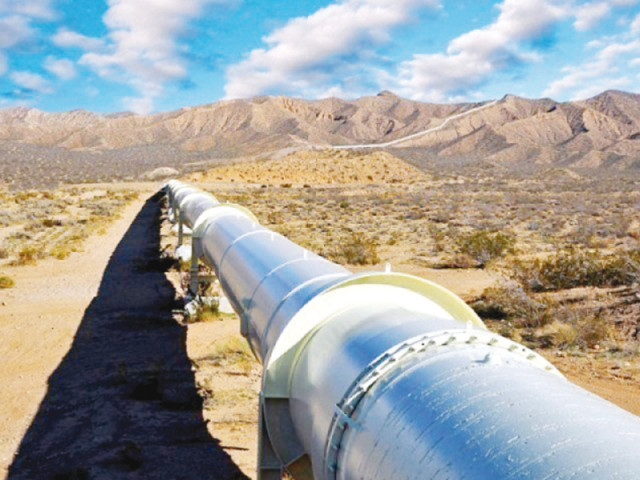Pipeline of opportunities: ‘TAPI will bring Kabul, Islamabad, Delhi closer’
Afghan petroleum minister says project will promote stability in the region.

Dr Daud Saba TAPI will help meet the Afghnaistan’s energy requirements and create thousands of jobs, and the transit fee will help increase its foreign reserves. STOCK IMAGE
The Turkmenistan-Afghanistan-Pakistan-India (TAPI) gas pipeline project will bring Afghanistan, Pakistan and India much closer, believes Dr Daud Saba, Afghanistan’s minister for mines and petroleum.
“I believe TAPI is a pipeline of opportunities. The project is a major factor for promoting peace and stability in the region and boosting cooperation among the participating countries,” he told The Express Tribune in Islamabad on Sunday. “I am confident that TAPI will lay the foundation for cordial relations between Pakistan, Afghanistan and India.”

Dr Saba disagreed with the impression that the strained relationship between Pakistan and India could have a negative impact on the project. He said representatives of both countries were ‘on the same page’ during the February 11 TAPI steering committee meeting in Islamabad.
“During the meeting, I noticed that Pakistani and Indian officials were very close to each other,” the minister, who represented Afghanistan in the huddle, said. “Pakistan, Afghanistan and India had a similar approach on the project. The three countries have common interests.”
The talks in Islamabad ‘made progress’, Dr Saba said, as the delegates of the countries participating in the project agreed for the first time to appoint a consortium leader. He added that the participants also showed their determination to vigorously pursue the implementation plan agreed upon by their countries.
The Afghan minister played down security concerns about the TAPI project. “There is no doubt that security is a problem in Afghanistan, but there is also strong determination [in the country] to deal with this challenge,” he said.
“The route of the pipeline, along the Herat-Kandahar Highway, also lies in a secure and peaceful area,” he added. “Thousands of vehicles laden with passengers and goods, use the highway and we have had no problem along the route.”
Dr Saba also said Afghan authorities had security plans for major projects in the country, many of which were implemented in the past. “We will have a similar security model for TAPI. With the help of the Afghan people, we will ensure security for this project.”
Asked as to who will foot the bill for the TAPI pipeline, the minister said all regional countries and major-multi-national institutions were interested in the project. He added that the TAPI steering committee discussed funding in the February 11 meeting and some interested parties offered capital for it. According to reports, representatives of the Asian Development Bank attended the meeting.
To a question about the expected benefits for Afghanistan, Dr Saba said TAPI will help meet the country’s energy requirements and create thousands of jobs, and the transit fee will help increase its foreign reserves. The gas will also boost Afghanistan’s industrial sector, he added.
According to Afghan officials, Kabul is scheduled to host the next TAPI steering committee meeting. Rafiullah Sediqi, spokesman for Afghanistan’s Ministry of Mines and Petroleum, told Azadi Radio in Kabul that the meeting is likely to take place in two months. He added that the date for the ground-breaking of the project will be announced at the end of the meeting.
Published in The Express Tribune, February 16th, 2015.



















COMMENTS
Comments are moderated and generally will be posted if they are on-topic and not abusive.
For more information, please see our Comments FAQ